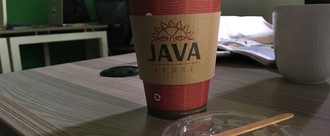-
DAKAR, SN: STOP À L'USAGE UNIQUE DU PLASTIQUEC'est important de lancer cette pétition pour dire #NONàlaPollutionPlastique parce que tout simplement c'est un facteur nuisible pour l'environnement mais aussi qui a déjà menacé les espèces marines, l'agriculture, pour dire clairement que l'écosystème est menacé.40 of 100 SignaturesCreated by Alex Johan PREIRA

-
SOUTH AFRICA: ONGOING RAW SEWAGE SPILL IN OLYMPUS STREET, FLORIDA HILLSRaw sewage spill that end up in storm water drains... This is a serious health risk and does major damage to the environment.112 of 200 SignaturesCreated by Des van der Merwe
-
SOUTH AFRICA: POISON FREE OVERSTRANDLets stop the poisoning! Conserve our insects, birds, frogs, plants and our health - like our lives depend on it - it does! Do not spray weed killers! We need a healthy Earth to thrive.163 of 200 SignaturesCreated by Fransel Hen-Boisen
-
DRC: NON À LA COMMERCIALISATION DE L'EAU EN SACHETS ET NON AUX EMBALLAGES EN PLASTICS.Nous pensons que la gestion de déchets afférents à ces plastics et sachets reste à désirer en ce sens que : - Pas de structure de ramassage et de destruction, - Ces sachets et plastics détériorent la qualité de notre sol en réduisant sa productivité, - Ces sachets et plastics ternissent l'image du pays et polluent notre environnement . - Nos eaux et nos sources souffrent de la pollution de ces sachets et plastics, - Ces sachets et plastics sont des lieux de prédilection pour les moustiques et autres insectes ...298 of 300 SignaturesCreated by Adonis NDAMRICH
-
NIGERIA: STOP SINGLE -USE-PLASTIC SACHET WATER PRODUCERSWhen you walk along the streets of major cities in Nigeria,you will understand why these "pure water" manufacturers must stop single-use-plastic sachets. The disgusting state of our streets and neighborhoods is a good example to ban these "pure water" sachets. Tonnes of sachet plastics end up in our streets, waterways, parks all over the country which lead to extremely unhealthy and unhygienic environment for conducive healthy living. This has turned most neighborhoods in our major cities like refuge dumps. Furthermore these plastic sachets end up as litter and pollution all over the country which eventually finds its way in the ocean, this too is dangerous for Marine creatures.283 of 300 SignaturesCreated by John Abumchukwu

-
CAMEROON: STOP À LA DESTRUCTION DE L'ENVIRONNEMENT PAR L'EST L'EXPLOITATION MINIÈRE NON CONTRÔLÉELes hectares des forêts, de terres, des cours sont détruits et des trous béants de profondeurs de 30 à 40m sont abandonnés par les exploitants miniers Chinois et Camerounais sans aucune restauration. Les populations locales voient leurs modes de vie changé complètement entraînant des multiples maladie dû à la qualité des eaux, les trous béants abandonnés causant les morts des personnes (enfants, femmes, hommes) , animaux sauvages et domestiques. Ces non respect des lois entraînent les facteurs du changement climatique n dans la région.89 of 100 SignaturesCreated by Michel Ndoedje
-
KENYA: TACKLING WATER POLLUTIONTHIS IS AN AREA THAT IS REALLY TALKED ABOUT UNTIL A DISASTER STRIKES. FOR INSTANCE OUTBREAK OF CHOLERA. IT IS IMPORTANT TO ADDRESS THIS ISSUE SINCE IT BRINGS ABOUT PUBLIC HEALTH PROBLEMS AND DEATH ON SOME CASES. ALSO IT AFFECTS AQUATIC ECOSYSTEM NEGATIVELY36 of 100 SignaturesCreated by Linah Kimathi
-
RD CONGO : NON AU DECLASSEMENT PARTIEL DES PARCS NATIONAUX DE SALONGA ET VIRUNGALes aires protégées de la RD Congo restent primordiales pour les populations riveraines, dans la mesure où celles-ci en tirent de nombreuses ressources pour leur substance (plantes médicinales, pêche de substance, bois, miel etc.) et offrent des opportunités économiques. Les menaces et pressions sur les ressources naturelles dans les aires protégées sont un danger non seulement pour l'homme congolais mais aussi pour l'humanité entière et la pérennité de la vie sur terre. La Salonga abrite jusqu'à 40% de la population mondiale de bonobos, tandis que les Virunga constituent un habitat vital pour de nombreuses espèces protégées, notamment les hippopotames, les éléphants et certains des derniers gorilles de montagne du monde. La pollution due aux activités pétrolières mettrait en péril la biodiversité du Parc et compromettrait l'intégrité de sa valeur universelle exceptionnelle. Cette pollution peut provoquer la contamination du lac Édouard qui sert de ressource primaire pour l'alimentation des populations autour et à l'intérieur des Virunga, notamment les pêcheurs, ceux qui vendent les poissons, ceux qui en consomment, donc des millions de personnes verront leurs vulnérabilité et pauvreté s’aggraver par la destruction du lac Edouard. C'est dans le souci de prévenir ces genres de catastrophes que la Constitution de la RD Congo, en son article 53 stipule que: « Toute personne a droit à un environnement sain et propice à son épanouissement intégral. Elle a le devoir de le défendre. L'Etat veille à la protection de l'environnement et à la santé de la population ».3,007 of 4,000 SignaturesCreated by Jersey Mpanzu

-
JOHANNESBURG, SA: FISHAWAYS BREAK AWAY FROM PLASTICWe try to recycle and reuse the unnecessary amount of plastic packaging that comes standard with our food but the truth is that Single-use plastics are filling up our oceans and killing marine life around the globe. Plastic is the most common element that is found in the ocean. It is harmful for the environment as it does not get break down easily and is often considered as food by marine animals. One hundred thousand sea mammals are killed in the ocean by pollution each year. There is an island of garbage twice the size of Texas inside the Pacific Ocean: the North Pacific Gyre off the coast of California is the largest oceanic garbage site in the entire world. There, the number of floating plastic pieces outnumbers total marine life six to one in the immediate vicinity. Plastic debris can absorb toxic chemicals from ocean pollution, therefore poisoning whatever eats it. In fact, plastic pollution is one of the most serious threats to the ocean. Plastic does not degrade; instead, it breaks down into progressively smaller pieces, but never disappears. They then attract more debris. It poses a significant health threat to the various sea creatures, and to the entire marine ecosystem. Overall, plastic is the number one source of pollution in the ocean. Plastic is not only harmful to the marine life but it has been found in our drinking water as well as salt. Plastic is making its way into the food we eat and when plastic is heated it releases120 different cancer causing chemicals. We have been blessed with this beautiful earth and it is the responsibility of each and every one of us to do our part in preserving and protecting our earth and each other.767 of 800 SignaturesCreated by Miriam Patel

-
NAIROBI, KE: JAVA HOUSE STOP USING SINGLE-USE PLASTICOn the surface, Java House seems very progressive in their efforts to be environmentally friendly, however, we have noted a few more items that you need to let go of to make a genuine impact. For far too long, big corporations have forced plastic packaging into our lives when we buy their products. We have been told that recycling and better waste management are the answers. But, we know that over 90% of plastic has not been recycled. It’s time for corporations to move away from single-use plastic. WE ASK YOU TO CUT YOUR USAGE TO STOP THE DEMAND FOR THESE ITEMS! The more that businesses move toward biodegradable or reusable alternatives, the cheaper they will become, and the less plastic makes its way into the environment.459 of 500 SignaturesCreated by Janet Chemitei
-
JOHANNESBURG, SA: KFC STOP USING SINGLE-USE PLASTICWith a total of 840 stores nationwide...its time you Keep Fingers Clean. A look around the polluted environment surrounding any KFC branch is all that is needed to understand why it is important for your business to become single-use plastic free. For far too long, big corporations have forced plastic packaging into our lives when we buy their products. We have been told that recycling and better waste management are the answers. But, we know that over 90% of plastic has not been recycled. It’s time for corporations to move away from single-use plastic. The disgusting state of our streets and neighbourhoods is one blaring example of why. Tonnes of plastic end up in trash bins and parks all over the city which lead to extremely unhealthy and unhygienic environment for conducive healthy living. The plastic cups, straws and plastic sachets are non recycable and end up as litter and pollution all over the country which eventually finds its way in the ocean.1,128 of 2,000 SignaturesCreated by Hasina Kooreyshi
-
CAPE TOWN, SA: WOOLWORTHS SA STOP USING SINGLE-USE PLASTICFor far too long, big corporations have forced plastic packaging into our lives when we buy their products. We have been told that recycling and better waste management are the answers. But, we know that over 90% of plastic has not been recycled. It’s time for corporations to move away from single-use plastic. WE ASK YOU TO CUT YOUR USAGE TO STOP THE DEMAND FOR THESE ITEMS! The more that businesses move toward biodegradable or reusable alternatives, the cheaper they will become, and the less plastic makes its way into the environment.582 of 600 SignaturesCreated by Janine Tilley

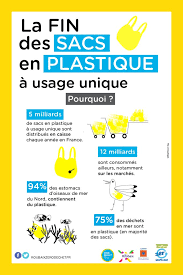.png)


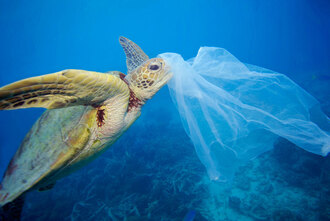
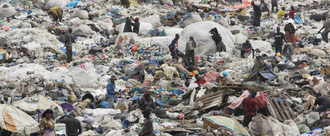


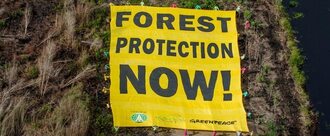
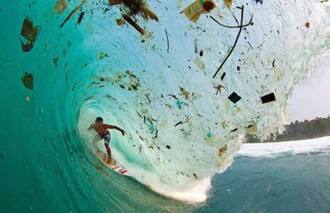.jpg)
